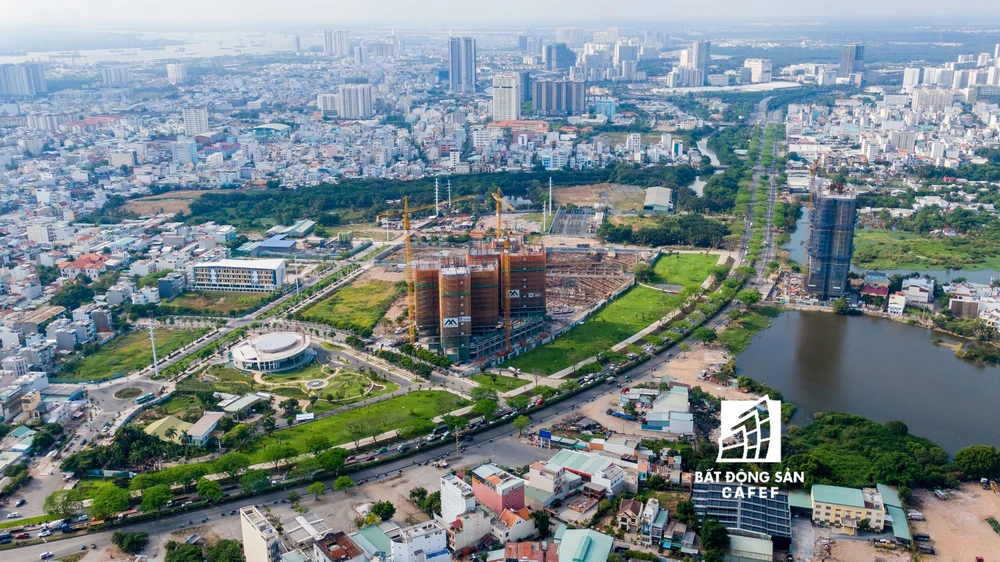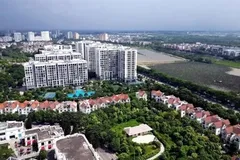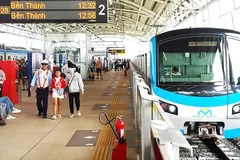
No new projects
Novaland Group is one of the leading real estate enterprises in Vietnam. Almost ten years back, Ho Chi Minh City was seen as an ideal and strategic location to develop new projects by this group. However, in the last few years, many of these new projects invested by Novaland in Ho Chi Minh City have seen a significant decline in response. The only new project that Novaland has now to offer is the Grand Sentosa, revived into a luxury project after the transfer from the Tai Nguyen Company. Recently, Novaland also announced its development strategy for the near future with a land fund of up to 10,600 hectares to be developed by 2025. Along with this, there are a number of new projects that have been under implementation recently.
Similarly, many other real estate businesses in Ho Chi Minh City also have no new projects in the market and are mainly focused on completing legal procedures for existing projects. The General Director of an enterprise shared that his company has a number of projects underway, but they do not know when the procedures will be completed, and when they will be able to proceed with construction and put the projects on the market.
In the case of one business, they were stuck in a project that had no residential land, so the procedures were delayed, while other projects lay entangled under regulations with 20% of the land fund for social housing, according to Decree 49/2021 of the Government on management and development. Decree 49 stipulates that projects of up to two hectares or more must reserve 20% of the land fund for social housing. Previously, under Decree 100, the area was ten hectares, and while this project was approved under ten hectares, Decree 49 took effect. If businesses follow the new regulations, they will have to redo the planning from the beginning.
Data from the Ho Chi Minh City Department of Construction shows that the supply of housing projects and products in Ho Chi Minh City in the period 2016 to 2021 has decreased sharply. From 10 December 2015 to 31 December 2020, all projects without 100% residential land were blocked. However, the number of housing projects eligible to raise capital still increased sharply in the years between 2015 to 2017. For the period 2011 to 2021, there were 92 projects in 2017 alone. This paradoxical situation is due to a lag in legal policies that affect the real estate market, as most of these housing projects were approved before the 2014 Housing Law came into effect.
In the last four years, from 2018 to 2021, the number of housing projects eligible for capital mobilization have decreased sharply. Specifically, in 2018 they decreased by 16.4%; in 2019 they were down 54.4%; in 2020 they were down to 64.3% compared to 2017. In 2021, there were only 20 projects raising capital, down 35% compared to 2020 and down 79.4% compared to 2017. Correspondingly, the number of houses mobilizing capital also decreased sharply. In 2018 this decreased by 34.2%; in 2019 it was down by 46.4%; and in 2020 it was down to 60.7% compared to 2017. In 2021, there were only 14,443 houses, down 14.6% compared to 2020 and down 66.5% compared to 2017.
Mr. Pham Lam, Chairman of DKRA Vietnam Company, analysed this situation saying that in the field of real estate, Ho Chi Minh City has changed from being a leading place to playing a counterbalancing role with other localities in the country, especially neighboring provinces such as Dong Nai, Binh Duong, and Ba Ria-Vung Tau. In fact, many large real estate enterprises in Ho Chi Minh City in recent years have invested in billion dollar projects in other localities such as Dong Nai and Ba Ria-Vung Tau. According to Mr. Lam, Ho Chi Minh City no longer has a large land fund, and compensation and clearance work is increasingly becoming more difficult, so the trend of shifting investment to localities with advantages in land fund and competitive investment environment is understandable.
Scarce demand
Mr. Le Hoang Chau, Chairman of the Ho Chi Minh City Real Estate Association, commented that the real estate market in Ho Chi Minh City is becoming very worrisome. In 2020, affordable apartments plummeted, accounting for 1% of the total number of houses put on the market. In 2021, out of a total of 14,443 houses, there were no affordable apartments. In contrast, the market has 10,404 high-end luxury and super-luxury houses, accounting for 73.98%, while the rest are mid-end houses, accounting for 26.02%.
There is now a shortage of affordable commercial housing and social housing. Accordingly, in the period 2015 to 2020, the whole country had implemented 248 social housing projects with about 100,000 apartments, which has reached only 41.4% of the plan. Ho Chi Minh City has implemented 15,000 social housing apartments, reaching 75% of the plan for the period 2016 to 2020. This housing product structure is a clear manifestation of the supply and demand mismatch, the imbalanced development of the real estate market due to lack of affordable housing, which is now showing signs of an oversupply of high-end housing.
In recent years, within the various districts of Ho Chi Minh City, house and land prices have been increasing rapidly, especially for small plots of land in residential areas in localities. Mr. Tran Hoang Quan, Director of the Ho Chi Minh City Department of Construction, and former Secretary of Party Committee of Binh Chanh District, said at a development orientation workshop in Binh Chanh that agricultural land in Binh Chanh used to be a few billion dongs per acre, now it has increased by five to six times.
Many experts have expressed their concern about the real demand for housing in the market not being met adequately. Experts believe that while investors have poured cash into segments that do not promote socio-economic development and do not contribute to settling people, this has over the years distorted the market. The owner of one business said that to overcome these inadequacies, it is not enough for businesses and investors to make efforts, but it is necessary to have synchronization with the legal system so that enterprises can proactively and confidently implement projects, and make the real estate market healthy.




















